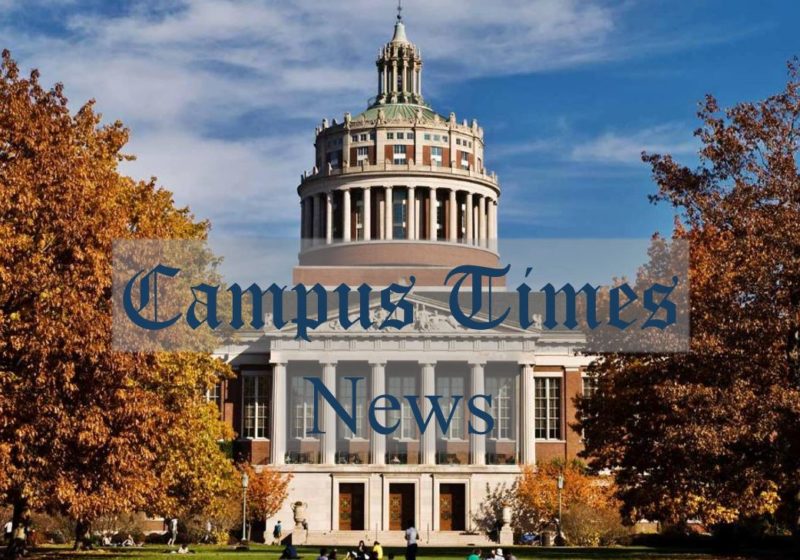In his Martin Luther King Jr. Commemorative Address, Princeton scholar Eddie S. Glaude Jr. didn’t bring up the “I Have a Dream” speech. That wasn’t mentioned until the Q&A. Instead, Glaude’s speech in Strong Auditorium on Friday evening focused on a different aspect of King: his despair.
Glaude began by describing a fundraising speech King gave on March 16, 1968, a month before he was assassinated. King’s popularity had waned, Glaude said, over his stance on the Vietnam War and push for action to end poverty that some perceived as dangerous. King, Glaude said, “had hit his own wall.”
Glaude quoted King’s speech: “I must honestly confess that I go through moments of disappointment when I have to recognize that there aren’t enough white persons in our country that are willing to cherish democratic principles over privilege. But I pray to God that there are some left.”
In the audience Q&A after his speech, Glaude talked about why he chose to emphasize this element of King.
“I’m trying to disrupt a certain way in which we [perceive] him,” he said. “The way in which we remember Dr. King in this moment is that we domesticate ‘I Have a Dream,’ we reduce him to ‘63, and then we characterize the ‘I Have a Dream’ speech in a particular sort of way, that actually affirms America’s inherent goodness, and it becomes a part of our exceptionalist narrative.”
Glaude’s delivery of the speech was emphatic and impassioned, but he routinely checked in with the audience with a “y’all alright?” in between sections. (“It’s the Baptist preacher in me,” he said.)
Using writer James Baldwin’s reflections on and memories of King as a focal point, Glaude brought the address from the 1968 fundraiser to King’s assassination, and eventually to the present. A recurring motif was something Baldwin wrote after King’s murder.
“Most people are not in action worth very much,” Glaude quoted. “And yet every human being is an unprecedented miracle. One tries to treat them as the miracles they are while trying to protect oneself against the disasters they’ve become.”
The word “disaster” was repeated throughout the evening. “And here we are today,” Glaude said towards the end of his speech, “living in the shadows of the disaster that is our current moment and grappling with our own temptation of despair.” He referenced the impeachment trial, the armed protest in Virginia, and the military tension with Iran. “The divisions in the country feel old and worn, like we’ve been here before.”
Then, pausing in between sentences for the audience to murmur in response, Glaude referenced the Rochester school crisis, mass incarceration, and poverty, finally asking: “How many souls have been darkened because of the corrosive effects of America’s original sin? What has been the cost of this long journey?”
“Something has died,” Glaude said. “But the ghost will not leave us alone. True freedom for all Americans requires that we confront the ghost directly. Maybe tell a different story. A better story about how we’ve arrived at this moment. A story that will release us into the possibility of being different human beings.”


